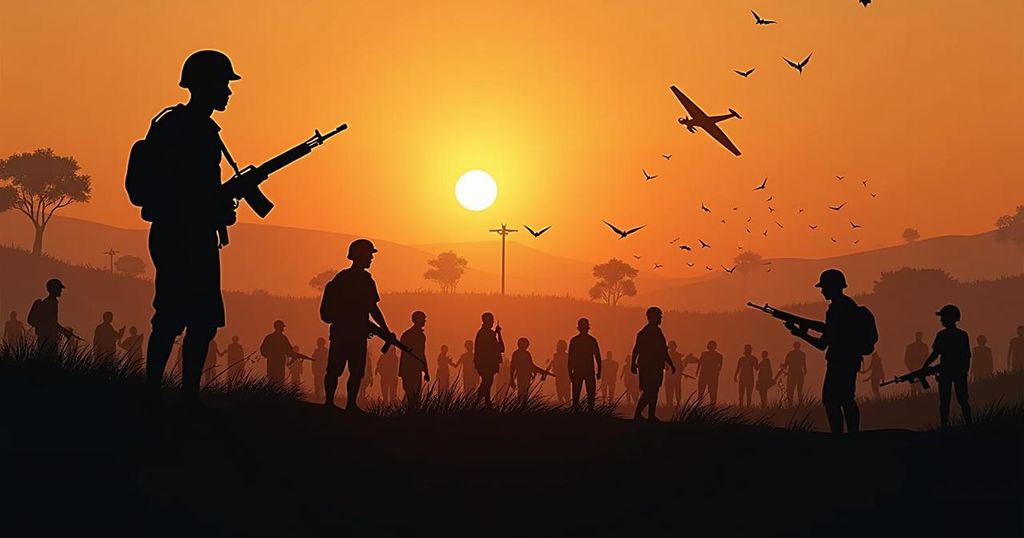Human Rights Watch reports that Rwanda’s army and the M23 militia shelled displaced people camps in eastern Congo, resulting in civilian casualties and hampering humanitarian efforts. The conflict in eastern Congo, involving over 120 armed groups, has displaced approximately 6 million individuals. Rwanda acknowledges its military presence in the area, claiming it is for security, while facing allegations of aggression and support for the M23 group by the Congolese government.
According to Human Rights Watch, both the Rwandan military and a militia it supports have been shelling camps for displaced individuals in eastern Congo. This report, made public on Thursday, asserts that since the start of the current year, the Rwandan armed forces and the M23 rebel group, which they endorse, have indiscriminately targeted areas where tens of thousands of displaced people have sought refuge. The Congolese army has allegedly heightened risks for these displaced individuals by positioning artillery near the camps. The report further notes that both parties have been responsible for fatalities among camp residents, instances of rape, and have obstructed humanitarian aid efforts. The eastern region of Congo is embroiled in armed conflict, with over 120 armed factions vying for dominance amidst ongoing violence that has displaced approximately 6 million individuals. The M23, a predominantly ethnic Tutsi militant group that broke away from the Congolese army more than ten years ago, previously undertook a significant offensive in 2012, capturing the provincial capital Goma, which they are currently threatening again. The Congolese government accuses Rwandan forces of aggression and war crimes within its borders, while experts from both the United States and the United Nations allege that Rwanda provides military support to M23. Rwanda has refuted these allegations; however, in February, it acknowledged the presence of its troops and missile systems in eastern Congo, citing security concerns due to a buildup of Congolese military forces along the border. In July, United Nations experts estimated that between 3,000 and 4,000 Rwandan government troops are operating alongside the M23 group, which has achieved considerable territorial gains. On the same day as the report was released, a regional court in East Africa commenced legal proceedings in response to a case submitted by the Congolese government against Rwanda, charging it with infringing on Congo’s sovereignty and territorial integrity through military intervention. Earlier this week, during his address at the United Nations General Assembly, President Felix Tshisekedi of Congo advocated for sanctions against Rwanda over its alleged support of M23.
The conflict in eastern Congo has been characterized by extensive violence involving more than 120 armed groups competing for control over land and rich mineral resources. This region has a long history of conflict, tied to ethnic tensions and the fallout from the Rwandan Genocide in 1994, which has exacerbated instability. The M23 rebel group, formed primarily by ethnic Tutsis, has played a significant role in this ongoing turmoil, with accusations of war crimes and human rights violations frequently levied against them. The geopolitical dynamics of the region further complicate the situation, with Rwanda’s perceived involvement in armed conflicts across its border raising serious legal and humanitarian concerns that provoke international attention.
In summary, the shelling of displaced persons camps in eastern Congo by Rwandan forces and the M23 rebel group represents a grave violation of human rights and exacerbates the already dire humanitarian situation in the region. The Congolese government’s allegations against Rwanda highlight the complexities of regional security dynamics and the ongoing struggle against armed groups in the area. As this situation unfolds, it remains critical to monitor the humanitarian implications and international responses to such aggressive actions.
Original Source: apnews.com







